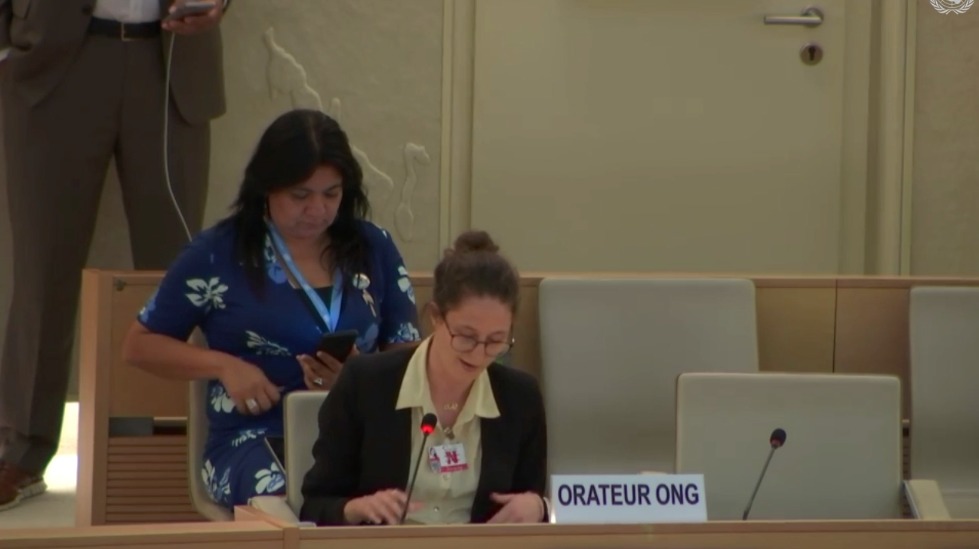On Friday 22 June, at the 38th session of the Human Rights Council, Annabel Bassil delivered an oral intervention during the clustered interactive dialogue with the Special Rapporteur on poverty and the Special Rapporteur on internally displaced persons (IDPs). Addressing the Rapporteur on IDPs, Bassil called attention to the effects the Saudi-led coalition’s attack on Hodeidah is likely to have on internally displaced persons. She noted that attacks on civilians and civilian infrastructure will potentially lead to 200,000 IDPs, most of whom will flee to already-overcrowded refugee camps, increasing the burden on strained humanitarian resources. See a video of her intervention here and click here for a PDF of her intervention, or read the text below.
Mr. President,
Alsalam and ADHRB welcomes Special Rapporteur Jimenez-Damary and thanks her for her report prioritizing the protection of internally displaced children.
In the midst of the coalition’s ongoing attack on the Yemeni port city of Hodeidah, the conversation on displaced civilians in the Middle East’s poorest country takes on a new level of precedence.
Even before Saudi Arabia and its coalition allies began their attack on Hodeidah – Yemen’s humanitarian lifeline – the conflict in Yemen had seen over 2 million displaced civilians, 89 percent of whom have been displaced for more than a year. But with no end of the war in sight, the already devastating crisis has taken on a new sense of urgency: desperation has led many to return home despite the ongoing conflict and the violence surrounding them. Many others have fled southward seeking safety, bringing with them their physical and psychological injuries from the conflict; placing even greater strain on already overburdened camps and towns buckling under demands for medical treatment, clean water, and food and shelter.
With the attack on Hodeidah, the UN has estimated that a potential 200,000 more people could be uprooted in the violence. As they flee, their need for food, water, and medical supplies will put even more pressure on Yemen’s already stressed and overburdened health system. As always, children are the most vulnerable in such situations.
Ms. Rapporteur, given the ongoing attack on Hodeidah—as well as the increasing crisis facing internally displaced persons in Yemen—what recommendations can you give the Council that may mitigate the impact of the attack on displacing innocent Yemenis, and also to address potential increases in famine, need for medicine, and that will aid the overall protection of Yemen’s internally displaced population?
Thank you.





